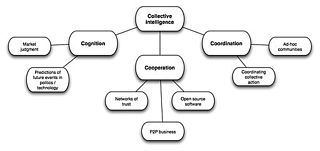Composition: The Elements of Learning Power.
Though Learning Power is conceived as a form of intelligence, it differs from some more familiar notions of intelligence in a number of important ways.
- First, it is seen as eminently practical, and not revealed particularly through solving abstract problems against the clock.
- Second, it is not primarily intellectual, but involves characteristics more usually associated with personality, such as emotional resilience in the face of difficulty or frustration. [2]
- Third, Learning Power is conceived of as a composite of interwoven capacities, rather than as a distinct 'monolithic' mental entity.
- Fourth, the elements of Learning power are usually described as dispositions [3] (David Perkins), Habits of mind [1] (Art Costa) or 'capacities' [4] (Guy Claxton) rather than skills. Skills are abilities that may need prompting - they do not necessarily come to mind when they are needed - whereas Learning power refers to a persistent orientation towards learning. Those with high levels of Learning Power can be said to be generally open to learning opportunities, and typically find engaging with challenges where they are uncertain of success pleasurable rather than aversive. [2]
- Finally, all the elements of learning power are seen as capable of development. Whereas conventional measures of IQ are taken to reflect intellectual endowments that are relatively constant over time and context, Learning Power emphasises the role of experience in expanding, or sometimes contracting, the dispositions towards learning. [5] This emphasis reflects the concern of those who use the concept with education: specifically with education seen as a preparation for lifelong learning.
Different authors have produced lists of the ingredients of Learning Power that differ somewhat, but largely overlap. Those of US authors such as Costa, Perkins and Ritchhart tend to be more focused on the kinds of intellectual learning typical of high schools and universities, while that of Claxton and his associates in the UK (Ruth Deakin-Crick, Bill Lucas) attempt to cover learning in informal as well as formal settings.
Building Learning Power
Within his Building Learning Power framework, for example, Guy Claxton proposes a list of 17 learning capacities grouped into four clusters called resilience, resourcefulness, reciprocity and reflection. [4]
- Resilience covers the emotional and attentional aspects of learning, and includes perseverance, absorption (or flow), concentration (or managing distraction) and perceptiveness (or attentive noticing). [4]
- Resourcefulness focuses on the cognitive aspects of learning, including questioning, connecting (making links), imagining, reasoning, and capitalising (making smart use of resources). [4]
- Reciprocity covers the social dimension of learning, and includes interdependence (balancing social and solitary learning), collaboration, listening and empathy, and imitation (receptivity to others' learning strengths). [4]
- Reflection covers the aspects of learning that are to do with strategic management and self-awareness. They include planning, self-evaluating (revising), looking for further application (distilling) and fluency in the languages of learning (meta learning).
More recently the framework has been developed in collaboration with Bill Lucas to more explicitly cover non-academic or 'real-world' learning. [6] Practical tools for schools have been developed that are aimed at enhancing students' confidence and capacity as learners, both within the institution and beyond. The tools embrace Art Costa's [Habits of Mind] programme, Ruth Deakin-Crick's ELLI [5] [7] (Effective Lifelong Learning Inventory) self-report questionnaire for assessing the development of learning power and Guy Claxton's Building Learning Power (BLP) publications and materials. Some of these concentrate on practical routines and methods for use by classroom teachers, while others attempt to take a broader approach towards whole-school culture change.
Criticisms
Most of the educational approaches based on the idea of Learning power are still in development, so large scale evaluations are thin on the ground as Ritchhart records in his work on dispositional development. [8] The ELLI instrument is well trialled and several reports of its development and use have been published. [5] Guy Claxton's Building Learning Power programme has produced several hundred action research reports. [9]

Arthur Robert Jensen was an American psychologist and writer. He was a professor of educational psychology at the University of California, Berkeley. Jensen was known for his work in psychometrics and differential psychology, the study of how and why individuals differ behaviorally from one another.
Educational psychology is the branch of psychology concerned with the scientific study of human learning. The study of learning processes, from both cognitive and behavioral perspectives, allows researchers to understand individual differences in intelligence, cognitive development, affect, motivation, self-regulation, and self-concept, as well as their role in learning. The field of educational psychology relies heavily on quantitative methods, including testing and measurement, to enhance educational activities related to instructional design, classroom management, and assessment, which serve to facilitate learning processes in various educational settings across the lifespan.

An intelligence quotient (IQ) is a total score derived from a set of standardized tests or subtests designed to assess human intelligence. The abbreviation "IQ" was coined by the psychologist William Stern for the German term Intelligenzquotient, his term for a scoring method for intelligence tests at University of Breslau he advocated in a 1912 book.
The theory of multiple intelligences proposes the differentiation of human intelligence into specific “modalities of intelligence”, rather than defining intelligence as a single, general ability.
Emotional intelligence (EI), emotional leadership (EL), emotional quotient (EQ) and emotional intelligence quotient (EIQ), is the capability of individuals to recognize their own emotions and those of others, discern between different feelings and label them appropriately, use emotional information to guide thinking and behavior, and manage and/or adjust emotions to adapt to environments or achieve one's goal(s). Although the term first appeared in 1964, it gained popularity in the 1995 book Emotional Intelligence, written by the science journalist Daniel Goleman.
Human intelligence is the intellectual capability of humans, which is marked by complex cognitive feats and high levels of motivation and self-awareness.
Psychology is an academic and applied discipline involving the scientific study of human mental functions and behavior. Occasionally, in addition or opposition to employing the scientific method, it also relies on symbolic interpretation and critical analysis, although these traditions have tended to be less pronounced than in other social sciences, such as sociology. Psychologists study phenomena such as perception, cognition, emotion, personality, behavior, and interpersonal relationships. Some, especially depth psychologists, also study the unconscious mind.

Critical thinking is the analysis of facts to form a judgment. The subject is complex, and several different definitions exist, which generally include the rational, skeptical, unbiased analysis, or evaluation of factual evidence. Critical thinking is self-directed, self-disciplined, self-monitored, and self-corrective thinking. It presupposes assent to rigorous standards of excellence and mindful command of their use. It entails effective communication and problem-solving abilities as well as a commitment to overcome native egocentrism and sociocentrism.
Intellectual giftedness is an intellectual ability significantly higher than average. It is a characteristic of children, variously defined, that motivates differences in school programming. It is thought to persist as a trait into adult life, with various consequences studied in longitudinal studies of giftedness over the last century. There is no generally agreed definition of giftedness for either children or adults, but most school placement decisions and most longitudinal studies over the course of individual lives have followed people with IQs in the top 2.5 percent of the population—that is, IQs above 130. Definitions of giftedness also vary across cultures.
Intelligence has been defined in many ways: the capacity for logic, understanding, self-awareness, learning, emotional knowledge, reasoning, planning, creativity, critical thinking, and problem-solving. More generally, it can be described as the ability to perceive or infer information, and to retain it as knowledge to be applied towards adaptive behaviors within an environment or context.
Developmental robotics (DevRob), sometimes called epigenetic robotics, is a scientific field which aims at studying the developmental mechanisms, architectures and constraints that allow lifelong and open-ended learning of new skills and new knowledge in embodied machines. As in human children, learning is expected to be cumulative and of progressively increasing complexity, and to result from self-exploration of the world in combination with social interaction. The typical methodological approach consists in starting from theories of human and animal development elaborated in fields such as developmental psychology, neuroscience, developmental and evolutionary biology, and linguistics, then to formalize and implement them in robots, sometimes exploring extensions or variants of them. The experimentation of those models in robots allows researchers to confront them with reality, and as a consequence, developmental robotics also provides feedback and novel hypotheses on theories of human and animal development.
Soft skills are a combination of people skills, social skills, communication skills, character or personality traits, attitudes, career attributes, social intelligence and emotional intelligence quotients, among others, that enable people to navigate their environment, work well with others, perform well, and achieve their goals with complementing hard skills. The Collins English Dictionary defines the term "soft skills" as "desirable qualities for certain forms of employment that do not depend on acquired knowledge: they include common sense, the ability to deal with people, and a positive flexible attitude."
A disposition is a quality of character, a habit, a preparation, a state of readiness, or a tendency to act in a specified way that may be learned.
Social intelligence is the capacity to know oneself and to know others. Social Intelligence develops from experience with people and learning from success and failures in social settings. It is more commonly referred to as "tact", "common sense", or "street smarts". Social scientist Ross Honeywill believes social intelligence is an aggregated measure of self- and social-awareness, evolved social beliefs and attitudes, and a capacity and appetite to manage complex social change. Psychologist, Nicholas Humphrey believes that it is social intelligence, rather than quantitative intelligence, that defines who we are as humans.

Intellectual disability (ID), also known as general learning disability and mental retardation (MR), is a generalized neurodevelopmental disorder characterized by significantly impaired intellectual and adaptive functioning. It is defined by an IQ under 70, in addition to deficits in two or more adaptive behaviors that affect everyday, general living.

Collective intelligence (CI) is shared or group intelligence that emerges from the collaboration, collective efforts, and competition of many individuals and appears in consensus decision making. The term appears in sociobiology, political science and in context of mass peer review and crowdsourcing applications. It may involve consensus, social capital and formalisms such as voting systems, social media and other means of quantifying mass activity. Collective IQ is a measure of collective intelligence, although it is often used interchangeably with the term collective intelligence. Collective intelligence has also been attributed to bacteria and animals.
The term emotional literacy has often been used in parallel to, and sometimes interchangeably with, the term emotional intelligence. However, there are important differences between the two. Emotional literacy was noted as part of a project advocating humanistic education in the early 1970s.
There are a variety of disabilities affecting cognitive ability. This is a broad concept encompassing various intellectual or cognitive deficits, including intellectual disability, deficits too mild to properly qualify as intellectual disability, various specific conditions, and problems acquired later in life through acquired brain injuries or neurodegenerative diseases like dementia.
The development of the European Lifelong Learning Indicators (ELLI) is an initiative of the non-profit Bertelsmann Stiftung to monitor the state of lifelong learning in Europe. The main focus of the ELLI project is the ELLI Index. The ELLI index is an annually updated composite indicator summarizing the state of lifelong learning for European countries. The ELLI IT platform is an online portal that provides access to regional data related to learning and socio-economic outcomes in Europe.
The following outline is provided as an overview of and topical guide to human intelligence:




